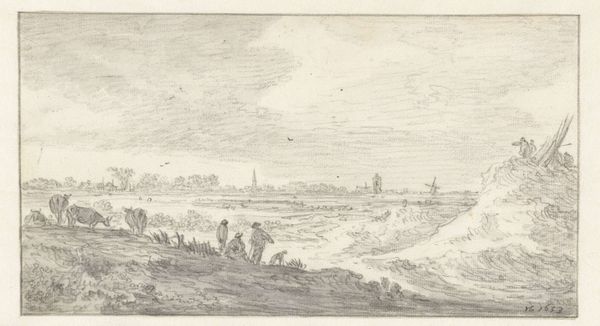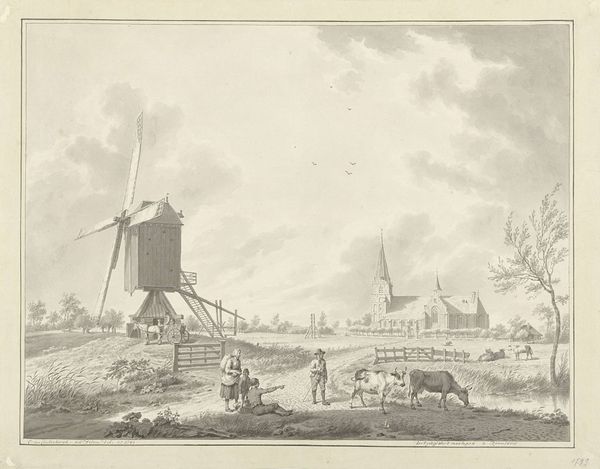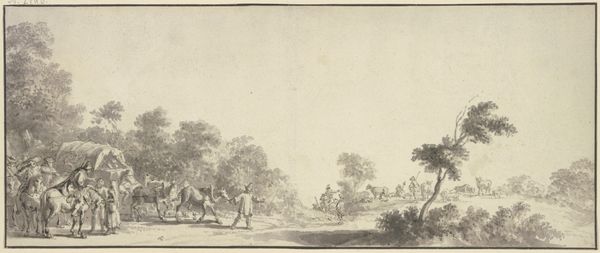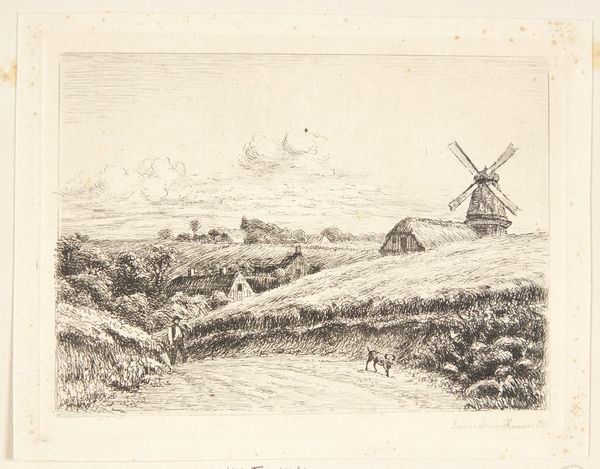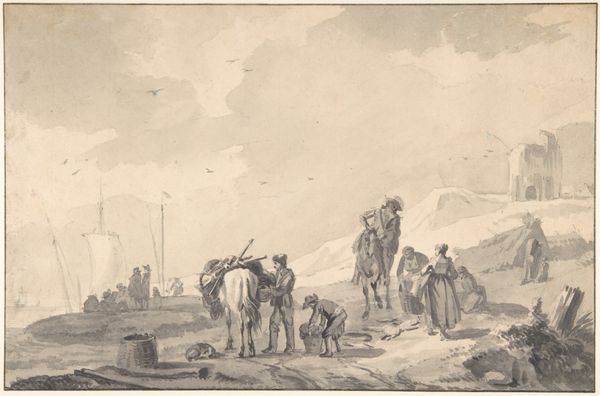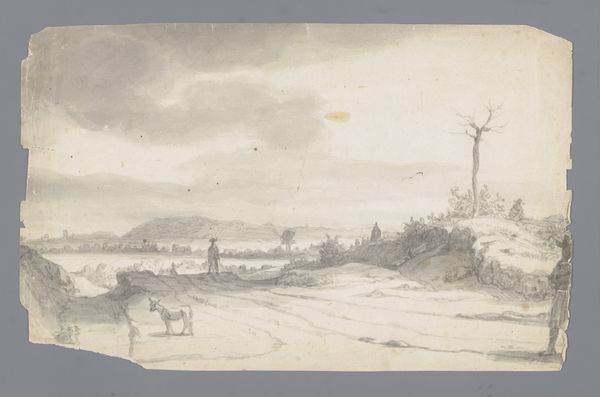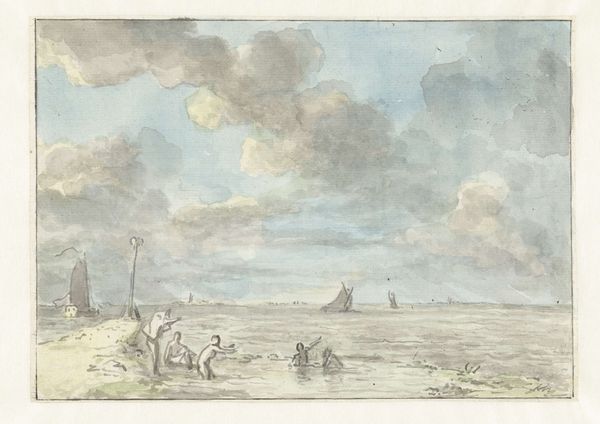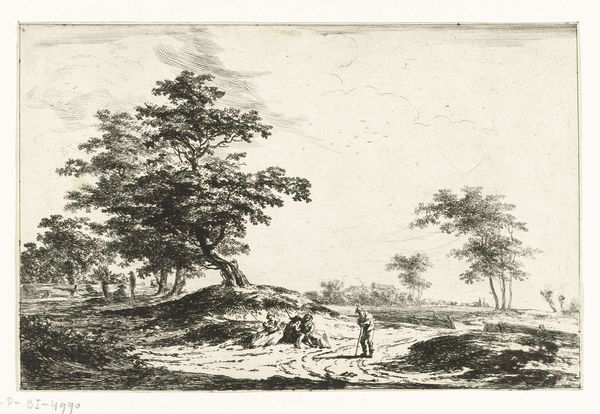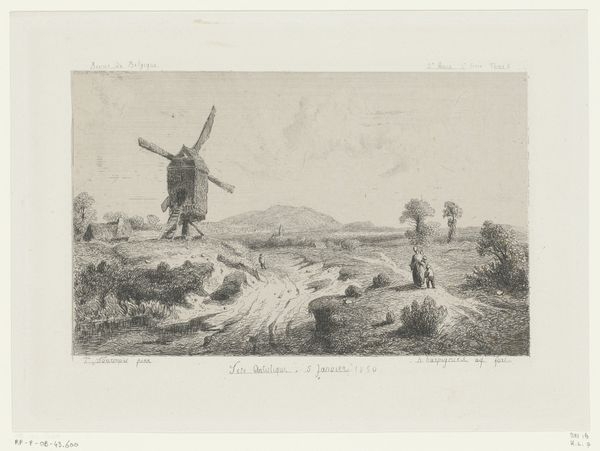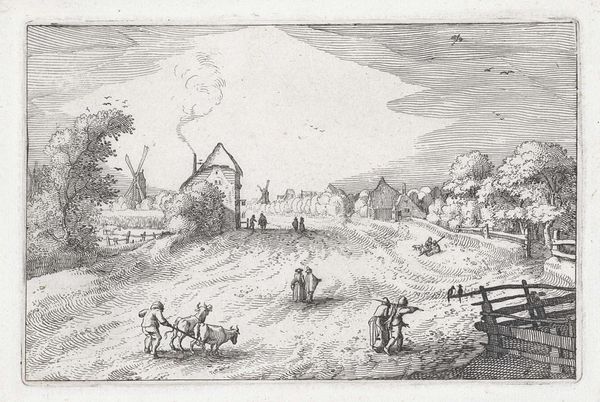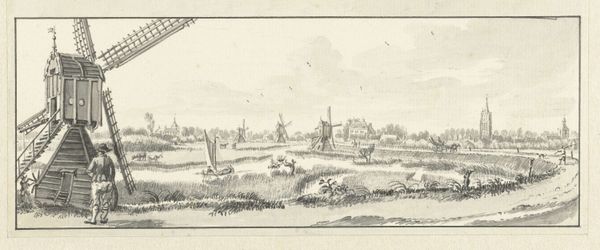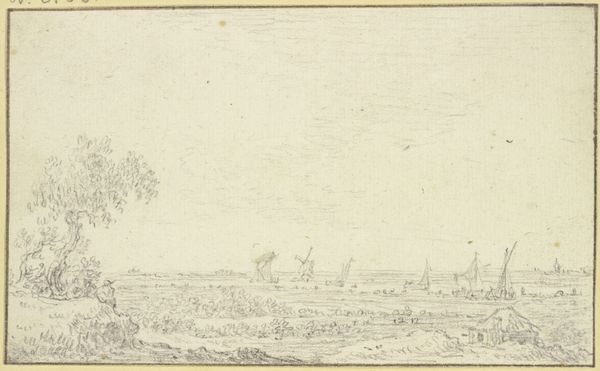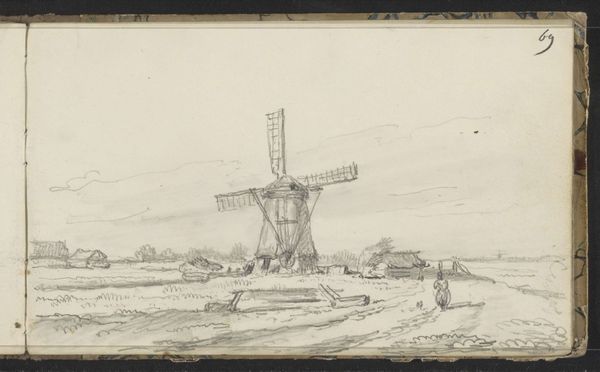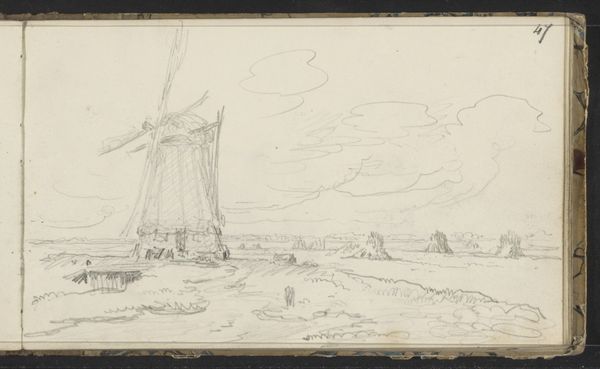
drawing, paper, pen
#
drawing
#
landscape
#
paper
#
pen
#
genre-painting
Copyright: Public Domain
Curator: Before us is Cornelis Pronk's drawing, "Regthuis te Winkel." It’s crafted with pen on paper and currently held in the Städel Museum collection. Editor: Mmm, there's a certain melancholic vastness here. Makes me feel small, in a field of potential… or maybe potato plants. Curator: Quite astute. Pronk emphasizes the horizon, splitting the composition, to highlight the agrarian labor and land demarcation that defined Winkel. The use of simple pen strokes articulates spatial depth effectively. Editor: The windmills definitely draw the eye. It’s like they are these looming sentinels overseeing this daily ritual of toiling on the land. Sort of oppressive, right? Curator: They are strategically positioned visual anchors, certainly. Their architectural form contrasts to nature but they're harmoniously integrated in the scenic, serving as a subtle socio-economic reference within the landscape genre. Note Pronk's method with the application of fine line work in varying densities; see the subtle gray-scale wash to achieve dimensionality. Editor: Sure, technically masterful… Still feels… well, drab, if I'm honest. Look at the bowed backs of those workers! Are those little piles next to them the harvested goods, or payment for the long, tough hours? Curator: This is precisely where the charm resides. The artwork isn’t concerned with idealized aesthetics, but an honest representation of daily life during Pronk’s era. Editor: Honesty… or romanticizing struggle? Maybe it depends on where you are in that social strata. I think of Breughel, but dialed way down on the celebratory tone and up on just... the daily grind. Curator: Your comparison is valid, yet Pronk differentiates himself in his muted palette and detailed rendering, a departure from Breughel's vivid coloration and robust forms. Editor: Well, whatever its virtues or shortcomings, it got me thinking about labor, class, and the romantic vision of the countryside, so I guess Pronk succeeded on some level, eh? Curator: Precisely. A compelling composition that reflects, prompts, and evokes across centuries.
Comments
No comments
Be the first to comment and join the conversation on the ultimate creative platform.
